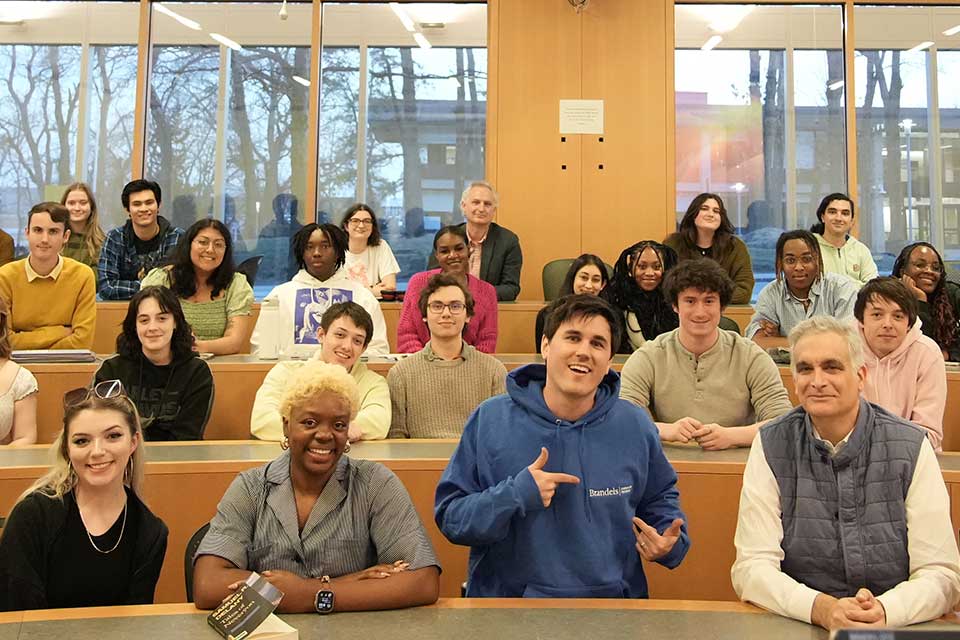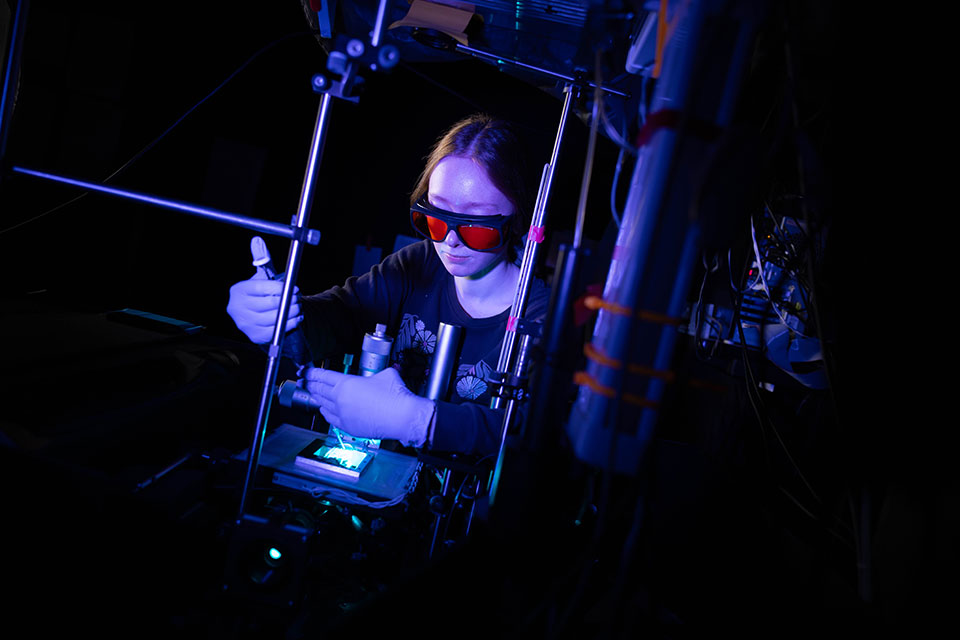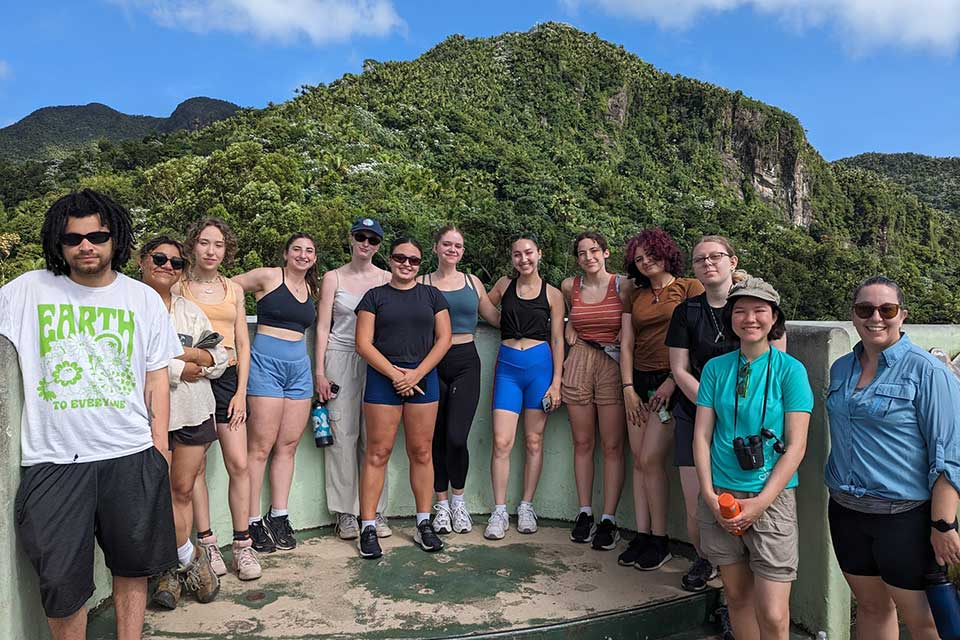Another summer of science: SciFest 2024
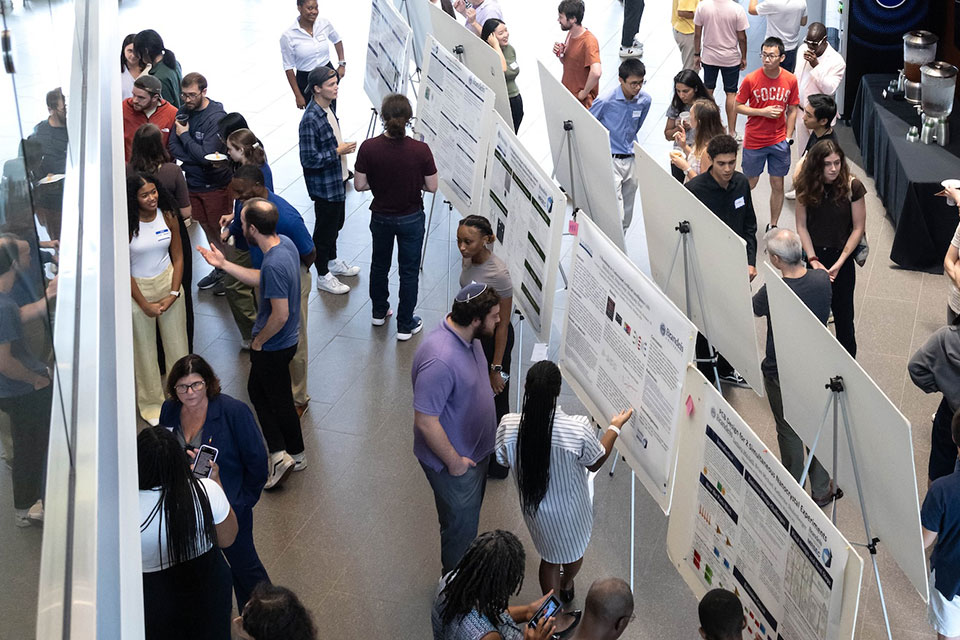
Photo Credit: Dan Holmes
By David Levin
August 14, 2024
Every summer, the Brandeis Division of Science becomes a dynamic hub for student research. Undergraduates spend more than two months embedded in faculty members’ labs, where they collaborate with professors, graduate students, and their peers on innovative research projects. Their efforts culminate in SciFest, a highly anticipated event that has been a summer highlight since 2011.
At this year’s event, 102 students presented their research through poster sessions in the Shapiro Science Center, where they spoke with visitors, discussed their findings, and built connections within the scientific community.
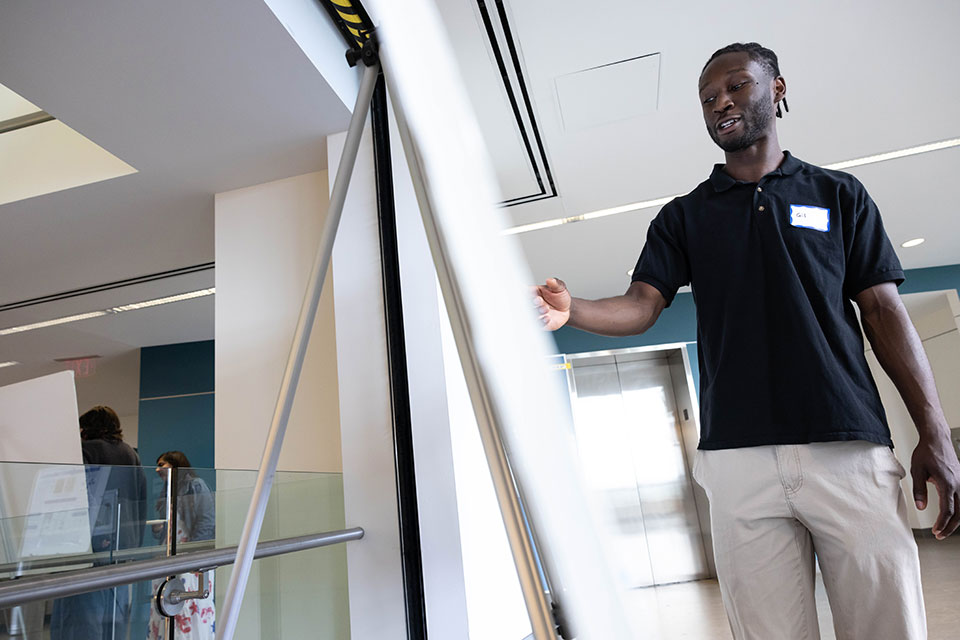
Photo Credit: Dan Holmes
Gilbert Otoo ’25 spent his summer studying neprosin, an enzyme found in the digestive fluid of pitcher plants. In addition to helping the plants digest stray insects, he says, the substance might also help to treat celiac disease, an autoimmune disorder triggered by wheat gluten.
Otoo had the opportunity to work directly with biochemist Dorothee Kern — and although he wasn't initially a biochemistry major, her guidance helped trigger his newfound passion for the research.
“A lot of this stuff was brand new information to me, so I just had to soak it all in as fast as possible. I’ve enjoyed it so much, though. I’m learning something new every day — I couldn’t ask for anything better,” he said.
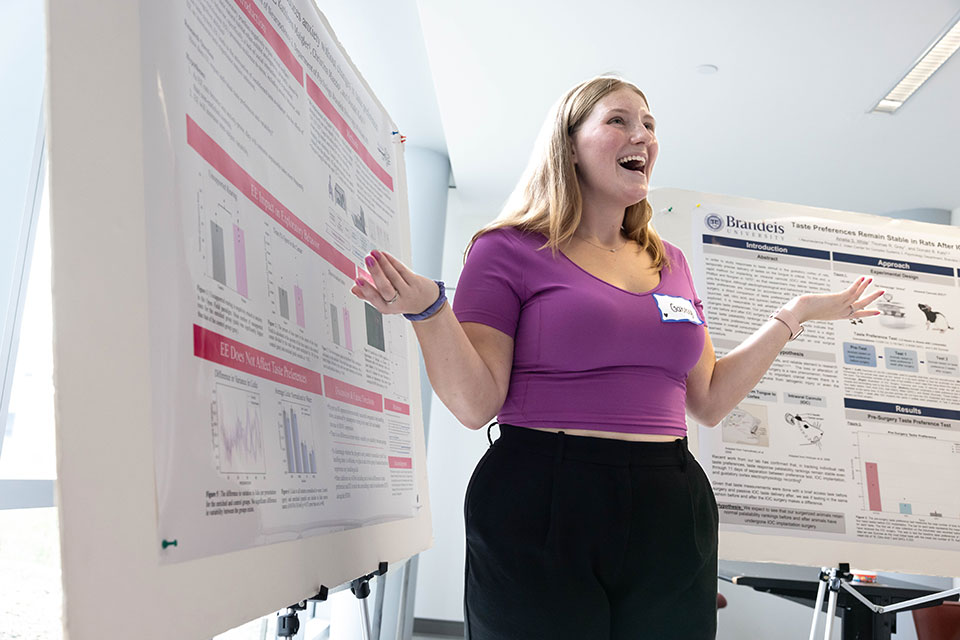
Photo Credit: Dan Holmes
For Gabby Wernick ’25, the motivation for doing hands-on summer research wasn’t solely scientific. An animal-rights activist, she said the health and happiness of lab animals was a major concern, so she designed a study in neuroscientist Don Katz’s lab to test whether enriched environments — like cages with more running wheels and toys — could help keep the animals calm.
“I’m really interested in neuroscience, but I don't like that rats are subjected to this surgery in some experiments,” she said. “Even if you take proper care with the surgery, they'll start biting at the cage and scratching and get open wounds. We found that as little as 45 minutes every other day in a playpen was enough to have a significant impact on their anxiety.”
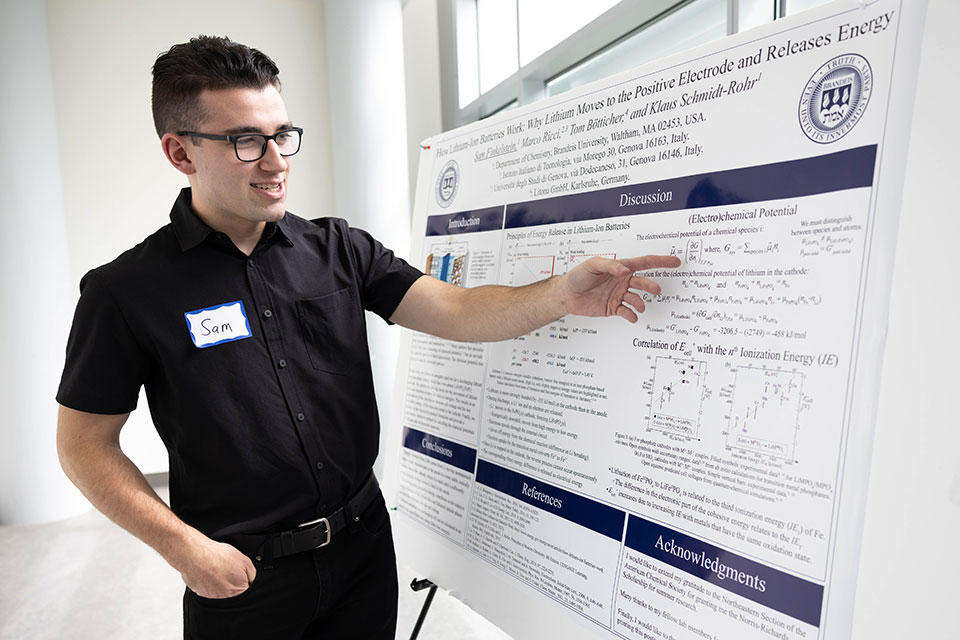
Photo Credit: Dan Homes
Sam Finkelstein ’25 presented new work on the complex chemistry of lithium-ion batteries, which power everything from cell phones to electric cars. He was inspired to dive deeply into chemistry after a first-year course with professor Klaus Schmidt-Rohr. This summer, he was finally able to join Schmidt-Rohr’s lab.
“It’s been an honor. I’m so intrigued by the way he thinks, because he approaches chemistry from a very different point of view, but it’s digestible. He’s able to explain it in a very intuitive, meaningful way,” he said.
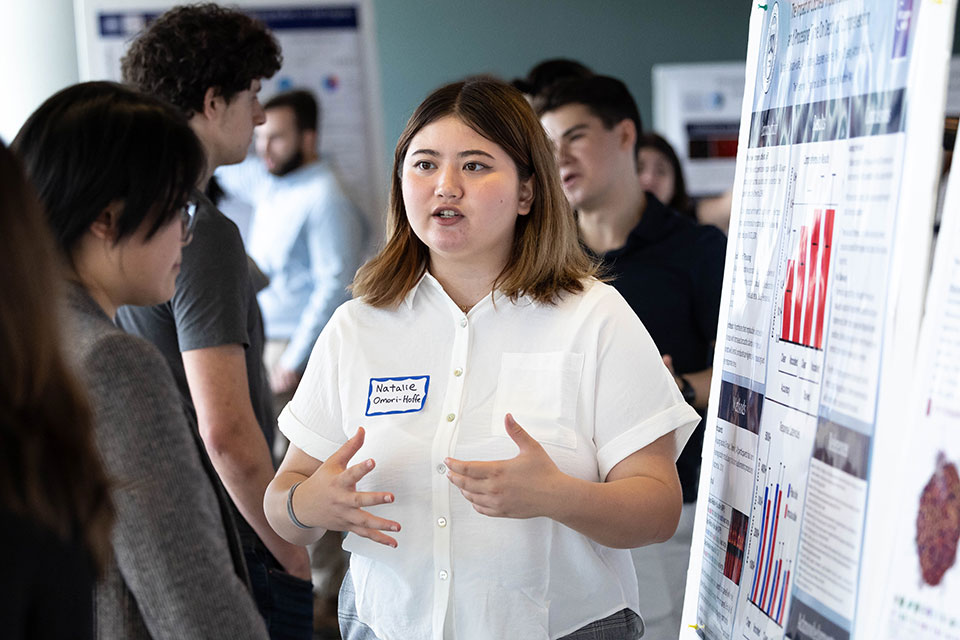
Photo Credit: Dan Holmes
As a rising senior, Natalie Omori-Hoffe ’25 already has three years of experience doing hands-on research. This summer, she joined the Brandeis Memory and Cognition lab, and created her own study examining how cochlear implants affect hearing and comprehension. She sees it as part of a larger body of work.
“I’m planning to do a thesis my senior year about this, and run the experiment with more participants. If the results continue to be interesting, maybe I could do some sort of publication,” she said. “It's really great to look back and see how much progress and growth I’ve been able to achieve.”
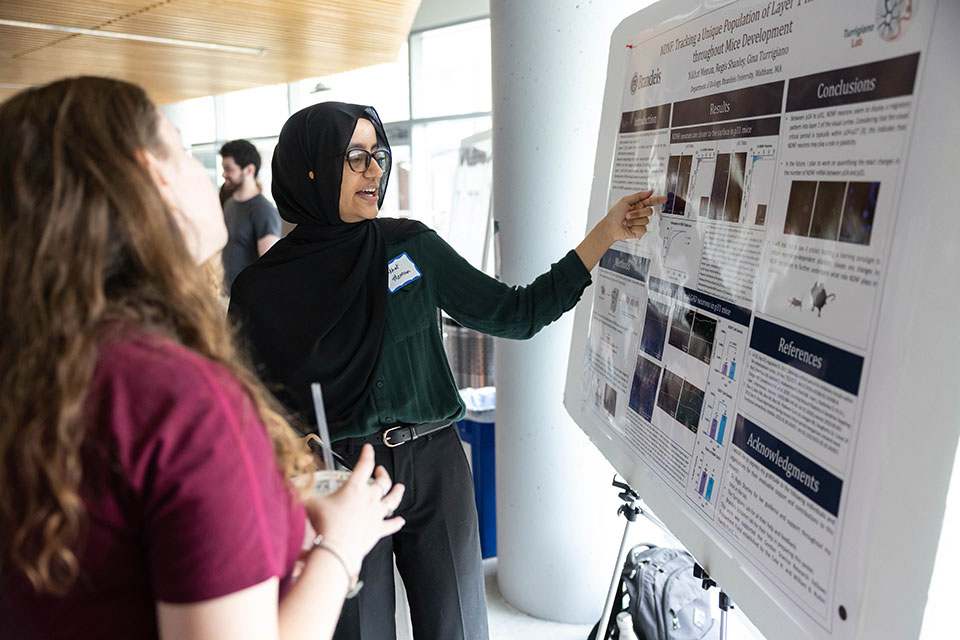
Photo Credit: Dan Holmes
This year’s SciFest was the first time that Nikhat Meman ’26 presented her original research on the visual cortex of lab mice. Although the preparation was stressful, she said her mentor, postdoctoral researcher Regis Shanley, gave her valuable support every step of the way.
“This time, I was totally in charge of how I wanted to track my project, but Dr. Shanley helped me brainstorm: What questions do I want to answer? What kind of project do I want to have in the long term?” she said. “I’ve been really grateful to get to work with her.”
Since her freshman year, Meman has been working with Shanley, who is part of neuroscientist Gina Turrigiano's lab. She plans to continue her work in the fall.
